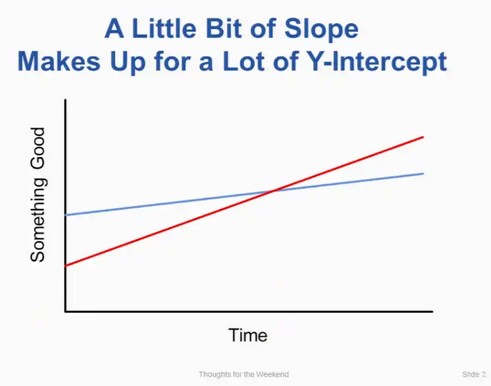
Image: businessinsider.com
Job interviews suck. You come, solve a few problems, until a fog appears in your head, and then there is neither hearing nor spirit from the company.
Now let's look at them from the other side of the barricades.
You publish a vacancy, 5000 applicants appear, choose 100, spend 2 weeks on telephone screening, 5 people have the knowledge necessary for work.
Interviews are a nightmare for both parties.
My girlfriend got a job last year at Visa, and later found out that five thousand people sent their CVs to her position. She stood out against their background by reading the job description.and indicated the corresponding experience. Yes, the bar is so low.
Her boss hired both candidates who stood out from the crowd. Out of five thousand people, two drew attention to themselves .
In June last year, I switched to another job . A half-hour coffee conversation (I was recommended) was enough for the employer to wait several months before I was ready for the interview.
What is the difference between a faceless crowd and the few who stand out against it?
It's about how you present yourself
The real rationale behind every interview is the question, "How can you help us?" Make sure you have an answer to it.
Imagine you are interviewing two candidates for a senior developer position. They have the same qualifications, the same experience, and the same length of service.
Bob presents himself as a typical engineer. Amazing technical knowledge, he can write great code, he knows how to break complex problems into separate tasks.
Bob asks about your company's technology stack, grins at your answer, and says that things were different when he worked at Google. You have to work hard to impress Bob.
Alice presents herself as a professional engineer.Amazing technical knowledge, she can write great code, she knows how to break complex problems into separate tasks. She loves to mentor juniors to help them develop faster.
Alice asks about your company's technology stack and says: “Yes, that's pretty typical at this stage. Usually companies try to release a product quickly to test the market. Have you already encountered <this problem>? And, of course, then you will come across in a couple of months, everyone has it. I saw examples when this solution came up. How are you doing on the frontend? The confusion is already starting to slow things down, isn't it? Here's what I did before, to solve this problem, you can use this step-by-step technique. You can't just throw away code that works and makes money. By the way, what is your strategy for increasing your staff? "
Which one will you hire?
Be a specialist, have suggestions
If you are a junior, then you will be hired if you are well trained. How quickly can we train you to become effective?
If you are a middle developer, then you will be hired due to your technical knowledge. Can you already do useful work and quickly fill knowledge gaps?
A slight increase in slope compensates for a large difference in y-intercept.

Slope compensates for a y-intercept.
When you are a senior, you are hired because of your experience and opinions .
The company doesn't know how to solve its problems. She doesn't even know what they are. She just knows they hurt. Why are we not releasing a product? Why is our product broken? Why can't we scale?
You are a specialist, my friend. You've seen it all before, you know how everything happens, you know when something will break beforehand. You can predict the course of events well in advance, and create code or architecture in preparation for the future.
Armed with experience, learning the lessons and receiving battle scars, you can give the new company some advice. You don't just write the code, you write the correct code.
Or as Jonathan Stark said recently: Your value comes from what you know, not just what you do.
Pure knowledge without implementation is already at the level of vice presidents and CTOs. Sounds boring.
Interviews are sales
You and your employers enter into a $ 700,000 business deal (your future salary for four years) with incomplete information. You don't know if you will like the job and the company, they don't know if you will help them.
If you fail and work for six months, you will receive 87 thousand dollars. Not a bad incentive for scammers, right? Therefore, companies are prudent.
With this in mind, how are you going to sell a $ 700K product? How will you buy it?
You don't buy a house after a half-hour conversation with a realtor, do you? There is a process. It happens that your brains are dumbfounded. There is a comprehensive analysis. Consequences happen.
The details may be different each time, but the approach “I sell the expensive services of a professional to a company that needs my help” never fails. Read a book or two on sales, it helps.
A good place to start is with the SPiN selling technique.
- Identify company weaknesses
- Draft solutions
- Give recommendations
Make the interview valuable. After each conversation, the interviewer should think, “Awesome! These tips must be applied, even if we hire him! "
You are not asking for a job, you are selling a service. A professional never begs, my friend.
Advertising
VDS with the latest hardware, attack protection and a huge selection of operating systems. The maximum configuration is 128 CPU cores, 512 GB RAM, 4000 GB NVMe.
Subscribe to our chat on Telegram .
